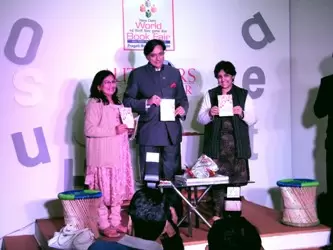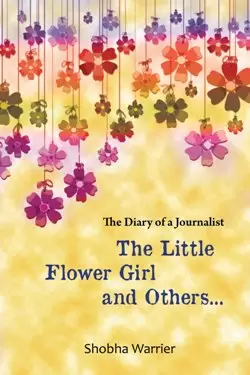People can surprise you when you reach them for help, a journalist found out

15-March-2013
Vol 4 | Issue 11
It was a year later that I saw Vetrivel again. He stood outside my door; tall, healthy and smiling.
I still cannot forget the frail, anaemic, and tired figure of two years ago, sitting on the floor next to his mother. One could clearly see a kind of tragic helplessness in his eyes.
The vegetables inside the basket of his mother, Indrani, were green and fresh, but the boy who sat next to them looked pale and miserable. He didn't even have the strength to sit straight then; he slouched and leaned against the wall for support.
Walking a few steps left him breathless and exhausted, as a hole in the walls of his heart resulted in the mixing of good and bad blood. He needed open-heart surgery to correct the problem. However, in this country of ours, even the poorest of the poor have to shell some money out for such a big surgery, even when it is undertaken at a government hospital.
Indrani took the feeble and sickly boy along with her everyday in spite of the fact that he could hardly withstand the 15 kilometre bus journey. How could an ailing boy walk when he found it difficult to even sit?
But his mother felt that unless people saw the little boy’s suffering with their own eyes, they would not feel moved to offer him a helping hand. Perhaps her fear was not without reason. By the time Indrani’s basket was empty, Vetrivel would be lying prone on the cement floor, drained of all energy. It was a pathetic sight.
Those of us who regularly bought our vegetables from her contributed some money towards the cost of Vetrivel's operation, labouring in the hope that he would walk, run and play like every other 11-year-old once again.
And then, there was no sight of Indrani for two months. All of us assumed that the operation had taken place.
However, it was not to be, as we found out the day she came back to her usual spot, her basket full of vegetables once again. That day, her voice, when she shouted, “Amma, kaai (Ma’am, vegetables)”, was not very loud, and even a stranger could sense the melancholy and despair therein.
When some of us went over to enquire after Vetrivel, we saw her sitting there with a vacant expression in her eyes. The moment she saw us, the tears began to flow endlessly.
It turned out that Vetrivel had been in the government hospital for nearly two months but had not been operated upon yet. The hospital authorities assured Indrani almost every day that the operation would take place soon. But two months on, the doctor who was meant to perform the operation was transferred elsewhere, as a result of which Vetrivel was referred to another children's hospital.
By then, she had spent all of the money she had collected from various well-wishers. But this did not stop her taking him to the hospital. The heartless heart surgeon there told them — in front of the ailing child, no less — that the operation was very risky and the chances of his survival were very low.
The doctor's 'kind' words terrified the little boy so much that he refused to be admitted to the hospital. The frightened boy told his mother that he would rather die elsewhere. Indrani was at that point desperately alone in the world with no one to support, calm, or help her.
But life had to go on, she had to work to survive, and her sick son had to eat to survive for at least as long as his heart would let him live. So she was back on the streets near our house with her basket full of vegetables.
At the conclusion of her sad tale, she pleaded, "Will you please help my son live? I don't want him to die now."
I felt helpless, but nonetheless angry and frustrated. The very thought of an 11-year-old dying for want of proper medical care in a city with a profusion of hi-tech hospitals and highly qualified doctors was unbearable. So, I along with a few friends got to work, trying to do all we could to help.
A letter to the chief minister's office requesting for help came back with a list of hospitals in the city that we could contact. They also promised Rs 5,000 towards the cost of the operation from the chief minister's relief fund.
Among the list of hospitals was a government railway hospital near Indrani's house. So, we decided to contact them first. No, they said, they could not offer any concessions on the cost of care to anyone.
'It will cost Rs 95,000 to perform this operation. Take it or leave it. It’s like a train ticket. Nothing more, nothing less’, the doctor said unsympathetically.
On confronted with this, Indrani wept again. 'When I cannot earn Rs.95, where do they expect me to come up with Rs. 95,000 from?'
It was around then that I had the opportunity to interview Dr. K. M. Cherian, a renowned cardiac surgeon. After the interview, I showed him Vetrivel’s medical records and asked him if he could help.
 |
|
This article is an extract from Shobha Warrier's book which was released by Shashi Tharoor at the World Book Fair in New Delhi
|
Without batting an eyelid, he agreed to perform the surgery free of charge. Free! I felt like jumping off my seat in joy. But we would have to pay for the medicines, about Rs 65,000. At the time of this kind-hearted offer, the hospital charged Rs 1,25,000 for open heart surgery.
From that day on, all the women in my neighbourhood decided to go out and aggressively beg for money to pay for Vetrivel’s medicines.
Armed with photocopies of his medical records, they set off to nearby schools, corporate houses, and Rotary clubs.
The impediments cited by the corporate houses were many, while the Rotarians claimed they had to meet before they could take a decision! But the Principal of the neighbourhood school was extremely helpful. One word from him in the morning assembly and every student voluntarily contributed Re. 1 each; some gave even more. On top of this, they prayed for the unknown boy who was fighting to stay alive.
A few weeks later, I interviewed Vaiko, a political leader from Tamil Nadu who was Member of Parliament then. While I didn't have a great deal of faith in politicians, I decided to ask Vaiko if he could help poor Vetrivel. To my pleasant surprise, he agreed immediately. As a Member of Parliament, he said he could collect Rs. 20,000 from the Prime Minister's Relief Fund to contribute towards the cause.
We even ran a small appeal in our neighbourhood newspaper. Here, I am obliged to note that not a single big newspaper came forward to help the boy. Unfortunately, the appeal was not very effective.
We received just Rs 3,600 in response. But some of the letters written to Vetrivel by the readers of the newspaper were so touching that it made all of us very emotional. One that sticks in my mind is that of a little girl who sent Rs. 10 in an envelope with a small note that read, 'Dear Vetrivel, I do not know you. But I wish you well. I have only ten rupees on me. Please get well fast.'
Every day, by no later than ten in the morning, all the women were out on the street, going from house to house and school to school, asking for money. In the evening, we would sit down and tot up our takings for the day. We usually went home disappointed.
The months passed and we were growing evermore desperate. What, we thought, if we could not raise the money? We had given Vetrivel and Indrani hope, and we had already decided that Vetrivel would not die for want of money. But how could we meet Dr Cherian to arrange for the hospitalisation when we hadn’t yet collected the amount required? Time was running out for the boy.
We grew so frantic with worry that we began to tell everyone of Vetrivel’s plight. We did not want to rule out any form of help from anyone, known or unknown. But the money continued to come in a mere trickle.
It was around this time that I narrated our unsuccessful efforts to a friend of mine. I was not expecting any miracles from her as she was only a student at the Indian Institute of Technology (IIT), Madras. But she did surprise us, and what a big surprise that was!
About a week after our conversation, she called me and said, 'We have collected donations from the students and some faculty members. We have split it in two halves. We have drawn one cheque in favour of the hospital, and another in the name of the boy’s mother. She is going to need a lot of money once the child comes back home from hospital. Please come along and collect it.' I rushed to the IIT campus.
"Can you guess how much we’ve collected?" she asked.
Maybe a few thousand rupees, I told her. But I was off by a long way; it was a whopping Rs 25,000!
We couldn't believe our — or rather, Vetrivel's — luck. With this big donation, we now had enough to take him to the hospital immediately.
But our struggle did not end with admitting Vetrivel to the hospital. He needed eight bottles of blood, of which two had to be fresh. Vetrivel's blood group, AB negative, was very rare indeed; this made the task all the more difficult. We were worried once again.
But this time, the late S. V. Venkatraman, a man who lived in our area, took the responsibility of arranging the blood upon himself, and did the needful.
 |
On the day Vetrivel's heart was to be opened, the students of the neighbourhood school prayed for him once again.
The operation was successful.
When we visited Vetrivel during his convalescence, he sat up on his hospital bed and thanked us with folded hands. I still cannot forget the smile on his face. Tears welled up in my eyes, both out of happiness and out of relief that this saga, which had gone on for nearly a year, had come to a successful conclusion.
That one year taught all of us a lot of lessons: it made us grow and look at life differently. We had expected doctors working in government hospitals to be kind, but it was a doctor from a private hospital who shouldered the responsibility. We had expected the Rotary clubs and corporate houses to step forward and help, but it was a politician and thousands of unknown faceless, nameless students who helped Vetrivel live again.
Today Vetrivel is tall, smiling and healthy because of the efforts of so many human beings. When one thinks of these warm and kind-hearted people, one gets the feeling that the world is, in spite of everything, a wonderful place to live in. All of these people — some of whose names I know, and many who remain unnamed to this date — give one hope and reaffirms one’s faith in humanity. (June 1999)
(Excerpted from The Little Flower Girl and Others- Diary of a Journalist by Shobha Warrier. Published by Vitasta Publishing Pvt Ltd)














